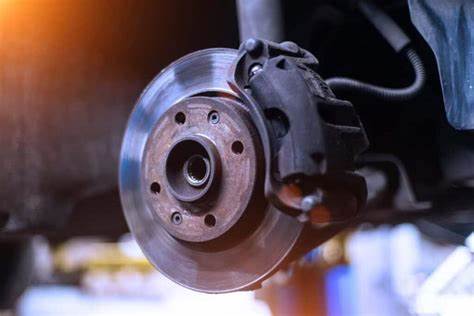It is used in the front brakes of cars; brake calipers slow down the vehicle by increasing the friction using the brake rotors. The car brake caliper is fitted on the brake rotors like a clamp, so they do not let the wheel move while you push the brakes. The brake calipers have brake pads inside them, generally in the form of metal plates.
The brake caliper is a very crucial part of a disc brake system. In this system, hydraulic pressure is the main focus. When the brake pedal is pressed, the brake fluid is forced.
Functions of a brake caliper
The brake calipers function as brackets that support the brake pads or the caliper bracket.
The brake calipers have pistons that convert the pressure you exert on brake fluid into friction, thus not letting the wheels move.
For a more superficial understanding, we can say that the purpose of the brake caliper is to squeeze the brake pads hence creating friction.
When you step on the brake pedal, the piston is pushed forward, and the brake fluid is compressed. In this way, the car is slowed down.
Signs of a Bad Brake Caliper
Although it is not very easy to identify a bad brake caliper that you might be using in your vehicle yet, some of the significant signs are as bulleted below:
- If the warning lights in your vehicle’s brake turn on, it might be a sign of a bad brake caliper.
- If the brakes are noisy and squeaking, the brake caliper might not be suitable.
When Should You Replace the Brake Calipers
The heat generated from consistent usage can damage the seals of the brake calipers. You should go for replacement of the brake calipers if:
- The brakes of your car are noisy continuously and squeaking as well.
- When you step on the brakes, your vehicle jerks to the opposite side.
- The brake pedals are pretty hard or soft, not as usual.
- The brake fluid is leaking around the engine.
How to Replace a Bad Brake Caliper
Following is a step-by-step guide for replacing a bad brake caliper:
- You need to lift the vehicle using a floor jack.
- Then remove the wheel from the car.
- You are advised to attach a hose to the bleeder screw to prevent leakage.
- You must dispose of the old contaminated fluid, so it does not flow back into the system.
- Take off the banjo bolt from the caliper. Swap the washers, if any, between the bolt and the caliper.
- Remove the bolts that are designed to clamp the caliper to the bracket.
- Replace the old caliper with a new one. And the whole replacement is a reversal of the removal process.
Conclusion
This article introduced brake calipers, their functions, signs of bad brake calipers, and the method of replacing the old brake caliper with a new one.


